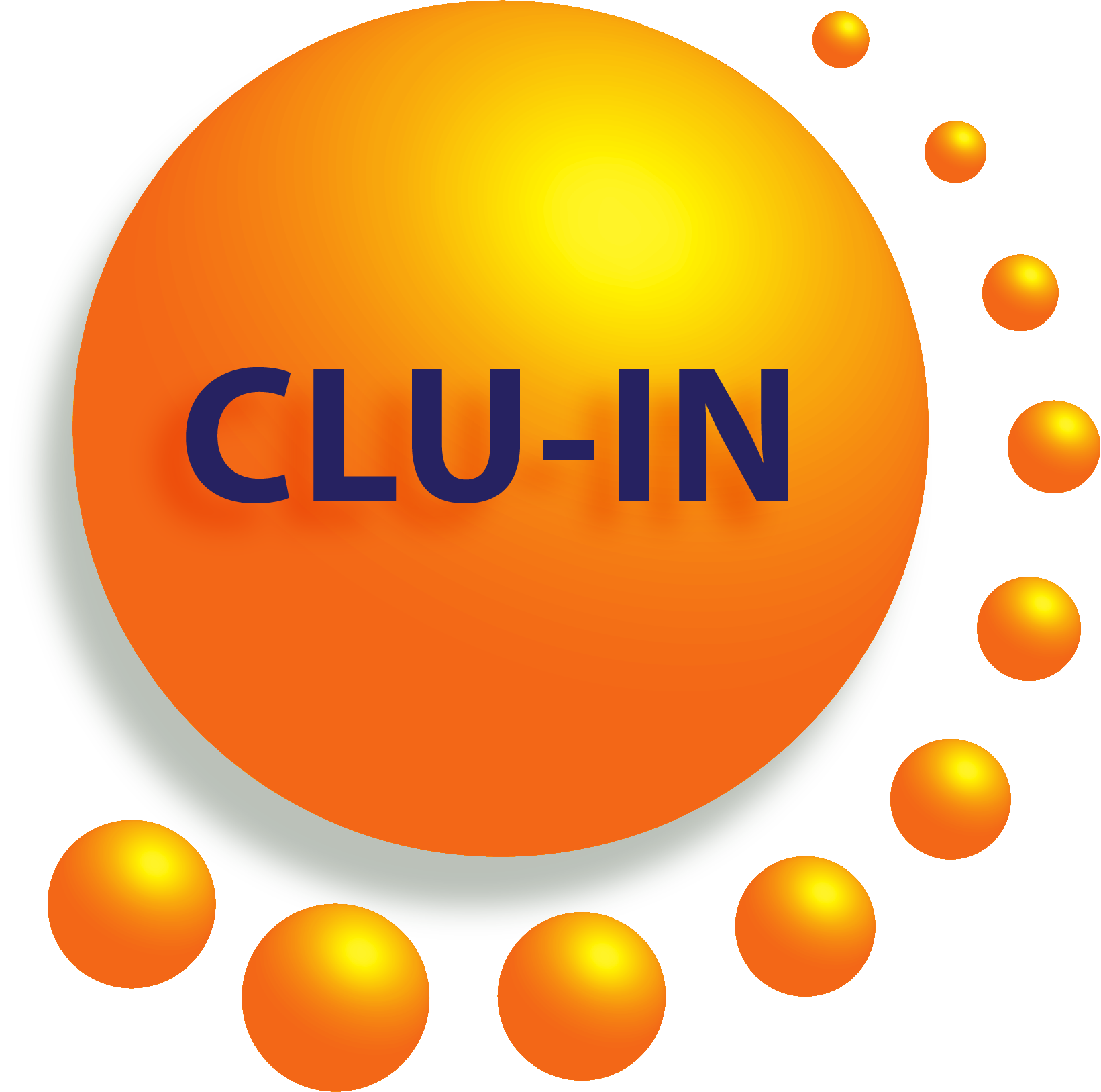FRTR Spring 2024 General Meeting: Artificial Intelligence and Machine Learning to Optimize Site Remediation
Sponsored by: Federal Remediation Technologies Roundtable
The FRTR Spring 2022 General Meeting explored applications of artificial intelligence (AI) and machine learning (ML) concepts to site cleanups. Technology advances in robotics, unmanned systems, and analysis of large data sets to support site characterization and remediation were reviewed. Projects seeking to advance use of AI/ML and support remedy decisions were presented. Potential benefits, risks, and limits of deploying AI/ML technologies were identified.
The FRTR 2024 Spring General Meeting provides an opportunity to share progress and results of recent AI/ML projects providing advanced contaminant plume characterization and predictive modeling, and improved cleanup efficiency. The meeting highlights site-specific case studies where AI/ML has substantially enhanced remedial decisions, remedy implementation and performance monitoring, and reduced needs for extensive sampling. Discussions during the meeting seek to provide remedial project managers and technical staff with information and best practices for deploying AI/ML technology.
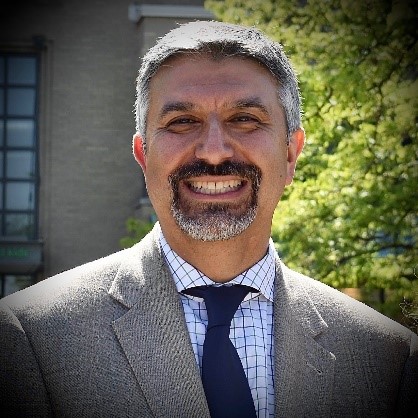 Greg Gervais, Office Director, Federal Facilities Restoration and Reuse Office, Office of Land and Emergency Management, U.S. Environmental Protection Agency
Greg Gervais, Office Director, Federal Facilities Restoration and Reuse Office, Office of Land and Emergency Management, U.S. Environmental Protection Agency
Greg Gervais is the national program manager for the U.S. Environmental Protection Agency's Federal Facilities Superfund Program and the director for EPA's Federal Facilities Restoration and Reuse Office in the Office of Land and Emergency Management. Greg is responsible for national policy development and oversight for over $8 billion in annual cleanup at federal facilities around the country, including 175 National Priorities List sites. He served as FFRRO deputy director from 2016 to 2018. He joined OLEM in 2011 and served until 2016 where he led EPA's innovative remedial technology assessment and knowledge transfer program for the Office of Superfund Remediation and Technology Innovation. Prior to joining OLEM, Greg was a senior engineer, program manager and program evaluator for the National Oceanic and Atmospheric Administration from 2002 to 2011. He previously served as a project manager and chemical engineer for the U.S. Army Corps of Engineers from 1996 to 2002. Greg began his federal career with the EPA Region 10 Superfund program. He holds a Bachelor of Science in Chemical Engineering from the University of Washington, Seattle, WA, and is a licensed Professional Engineer.
Gilberto "Tito" Irizarry, U.S. EPA OSRTI TIFSD
Jean Pablo Pabon Quinones, Department of Energy (jean.pabon@em.doe.gov)
Jean Pablo (JP) Pabón serves as a Program/Project Manager with the Technology Development Office (TDO) in the U.S. Department of Energy's (DOE) Office of Environmental Management (EM) tasked with pursuing the development of innovative technologies to improve the safety of the EM workforce and complete EM's cleanup mission. Before working at TDO, JP supported the Office of Project and Contract Management in EM, where he provided independent oversight of EM capital assets and operation activities, including activities related to on-site cost, schedule, technical, and the management of reviews for several sites within DOE including Argonne National Lab, Portsmouth, Paducah, Waste Isolation Pilot Plan, Savannah River, MOAB, Mound, SLAC, Lawrence Berkeley National Lab, Energy Technology Engineering Center.
Prior to working at DOE, JP was a graduate student in the Department of Geology at University of Puerto Rico - Mayaguez (UPRM) Campus. His graduate studies focused on geophysics and structural engineering by evaluating geophysics methods to identify the most effective in characterizing karsts' sinkholes, recognizing subsurface areas of high porosity, cavities, conduits and solutionally enlarged fractures in northern Puerto Rico. JP was also a Teacher Assistant for Environmental Geophysics, Engineer Geology, and Optical Crystallography undergraduate courses. Concurrently, he worked as a Geologist/Engineer consultant and supervisor for PIM Engineering Laboratory, a geotechnical engineering consulting company.
Carol Eddy-Dilek, Savannah River National Laboratory (carol.eddy-dilek@srnl.doe.gov)
Carol Eddy-Dilek is a Laboratory Fellow at the Department of Energy Savannah River National Laboratory. For the past 33 years, she has worked on a variety of programs focused on development and deployment of innovative approaches and tools for environmental characterization and remediation, specifically, the design and optimization of phased characterization strategies that can be applied to complex and challenging environments. Her efforts resulted in the successful development or deployment of over twenty innovative methods for subsurface access and characterization that have been successfully applied within the DOE complex. Since 2002, she has been the technical lead for the Department of Energy's Technical Assistance program at the Savannah River National Laboratory that provides technical support to the DOE complex. Since 2006, she has organized more than 25 teams that have visited eleven DOE sites and made recommendations yielding an estimated cost savings of $100M. She is currently the lead for the DOE EM ALTEMIS project to develop a new paradigm of long-term monitoring based on state-of-art technologies — in situ groundwater sensors, geophysics, drone/satellite-based remote sensing, reactive transport modeling, and AI — that will improve effectiveness and robustness of monitoring, while reducing the overall cost. She is also the lead for the EM National Laboratories activities focused on expanding the Office of Legacy Management access to EM technical expertise in the development and deployment of environmental strategies.
Leonel E. Lagos, FIU
Dr. Leonel E. Lagos has over 24 years hands-on experience in executing, managing, and leading sponsored research programs sponsored by federal agencies and private industry. As a principal investigator (PI) and Director of Research at FIU's Applied Research Center, Dr. Lagos directs and executes sponsored research projects under Cooperative Agreements and research grants from various government agencies including the Department of Energy's Office of Environmental Management, Department of Defense's Test Resource Management Center and Department of Energy's Minority Serving Institutions Partnership Program.
He is also a certified Project Management Professional (PMP) and relies on his vast technical and management skills to lead multi-disciplinary and multi-million dollars research efforts engaging fulltime staff (scientists/engineers/faculty), STEM students (undergraduates and graduates), and post-doctoral Fellows. Dr. Lagos also is a member of the American Nuclear Society (ANS) and has served as the Chair of the Executive Committee for the Robotics and Remotes System Division (RRSD). Dr. Lagos has led ARC international efforts and has developed strong working relationships with the International Atomic Energy Agency (IAEA), the OECD Nuclear Energy Agency (NEA) of France, the Korea Atomic Energy Research Institute (KAERI) and the Institute for Energy Technology (IFE), Halden, Norway. Dr. Lagos has also served as an adjunct professor in FIU's Biomedical Engineering Department and Mechanical and Materials Engineering Department. Dr. Lagos is also a Graduate Faculty within the Department of Civil and Environmental Engineering at FIU.
Brad Bonn, Boston Dynamics
Brad Bonn is the Senior Manager of Nuclear Operations for Boston Dynamics. Brad's primary focus is to work with customers and partners to ensure their robots keep people safe, reduce costs, PPE waste, and improve mission effectiveness in hazardous scenarios. He spearheaded the development of the first radiation mapping technology on Spot by aligning sensor data with robotic localization, conducted the first testing of Spot in a high radiation environment, and has personally operated Spot robots in one of the world's most significant nuclear accident sites. Before his time at Boston Dynamics, Brad spent more than 20 years working with technologies ranging from software and cloud infrastructure, to the core backbone of the Internet.
Brian Ringley, Boston Dynamics
Brian Ringley is a Principal Product Manager at Boston Dynamics where he leads digital twin product development, specifically industrial facility mapping to support enterprise asset management and anomaly detection for preventative maintenance. Before coming to Boston Dynamics, he was a Senior Construction Automation Researcher at WeWork and a Senior Associate on the Design Technology team at Woods Bagot. He has taught at Pratt Institute, the City University of New York, and the University of Cincinnati.
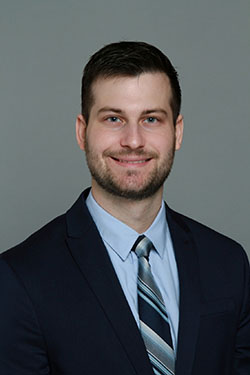 Hunter Klein, NAVFAC EXWC (hunter.w.klein.civ@us.navy.mil)
Hunter Klein, NAVFAC EXWC (hunter.w.klein.civ@us.navy.mil)
Hunter Klein is a Chemical Engineer at the Naval Facilities Engineering and Expeditionary Warfare Center (NAVFAC EXWC) with 4 years of experience in the field of environmental security and compliance. He has both assisted and served as the principal investigator for several research, development, test, and evaluation (RDT&E) projects relating to energy and water resiliency efforts through ESTCP, NDCEE, NSETTI, and NESDI. These efforts have included demonstrations involving expeditionary waste-to-energy systems, wastewater and potable water treatment systems, and advanced leak detection technologies. He earned a bachelor's degree in chemical engineering from University of California, Davis and a master's degree in material science and engineering from University of California, Los Angeles.
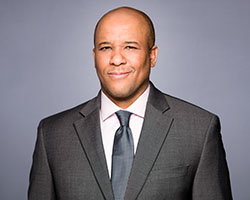 Kendrick White, NAVFAC EXWC (kendrick.l.white.civ@us.navy.mil)
Kendrick White, NAVFAC EXWC (kendrick.l.white.civ@us.navy.mil)
Mr. Kendrick White is an Engineer at the Expeditionary Warfare Center (EXWC) within the Naval Facilities Engineering Command (NAVFAC).
He has been principal investigator on various Research, Development, Test, and Evaluation (RDT&E) projects involving Artificial Intelligence and Machine Learning (AI/ML), natural language processing (NLP), agent-based modeling and simulation, extreme value modeling and prediction, and multivariate time series analysis. These techniques were applied to fields including mooring systems, waterfront structures, distributed logistics, and geothermal energy production.
He earned a bachelor's degree in electrical engineering from Tuskegee University and a master's degree in Mathematics from the University of Alabama at Birmingham.
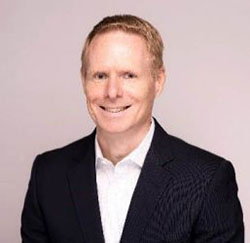 David Adamson, Ph.D, P.E., GSI Environmental Inc.
David Adamson, Ph.D, P.E., GSI Environmental Inc.
Dr. David Adamson is a Vice President and Principal Engineer with GSI Environmental Inc. in Houston, Texas USA and has more than 24 years of experience in the environmental field. Dr. Adamson has authored or co‐authored over 60 published technical articles with a focus on PFAS, 1,4‐dioxane, and contaminant fate and transport. He has been a PI or co-PI for a number of SERDP and ESTCP research projects, including as co-author of the ESTCP‐sponsored guidance document “Frequently Asked Questions About MNA” and was one of three co‐instructors for the ESTCP-sponsored “Massive Open Online Course” (MOOC) on MNA. Dr. Adamson has been a trainer for ITRC and has served as an Adjunct Assistant Professor and Lecturer at Rice University
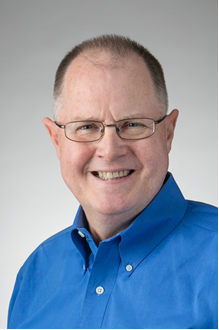 Charles Newell, Ph.D, P.E., GSI Environmental Inc.
Charles Newell, Ph.D, P.E., GSI Environmental Inc.
Dr. Charles Newell is a Vice President of GSI Environmental Inc. in Houston, Texas, USA. He is a member of the American Academy of Environmental Engineers, a NGWA Certified Ground Water Professional, and an Adjunct Professor at Rice University. He has extensive experience in the remediation of soils, groundwater, and surface water impacted by hydrocarbons, solvents, and/or PFAS. He was awarded the 2018 ITRC Environmental Excellence Award; the 2020 Foundation Achievement Award presented by the Association for Environmental Health and Science; and the American Academy of Environmental Engineer’s 2024 Gordon Maskew Fair Award.
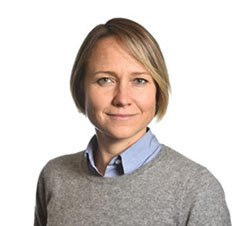 Inci Demirkanli, PNNL
Inci Demirkanli, PNNL
Inci Demirkanli is a senior scientist and technical advisor at PNNL with experience in analytical and numerical modeling of multiphase flow and transport with application in remediation research and radionuclide mobility, and subsurface energy and storage systems, such as geologic sequestration of carbon dioxide. She provides technical support to the Department of Energy (DOE)'s Richland Office on integrated cleanup efforts as well as programmatic and regulatory strategy development at the Hanford site. Her technical work at Hanford focuses on performance-based pump-and-treat remedy optimization approaches, characterization and monitoring of contaminants in groundwater and vadose zone, in-situ source remedy development, treatability studies and implementation, as well as implementation of adaptive approaches for cleanup. In addition, she also supports the Environmental Protection Agency (EPA) related to injection of carbon dioxide into subsurface for storage purposes and permitting of industrial scale projects. She developed the Aquifer Injection Modeling (AIM) Toolbox.
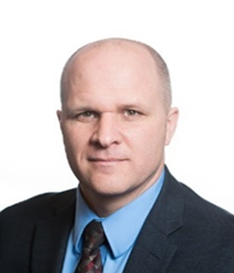 Tim Johnson, PNNL
Tim Johnson, PNNL
Dr. Tim Johnson is a computational geophysicist at PNNL. He is internationally recognized for his technical contributions to subsurface geophysical imaging and process monitoring. His primary research is focused on characterizing and monitoring subsurface properties and processes using autonomous geophysical measurements, with an emphasis on electrical methods. Dr. Johnson is the original developer of the award winning E4D software, parallel electrical resistivity tomography and spectral induced polarization inversion code designed specifically for 4D subsurface imaging.
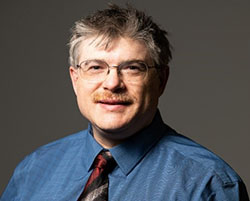 Christian Johnson, PNNL
Christian Johnson, PNNL
Christian Johnson has worked on environmental restoration and remediation technology research and development at PNNL since 1992. He has designed and implemented multiple ex situ and in situ bioremediation systems for treatment of hydrocarbons and chlorinated solvents and is an author of the RT3D reactive transport code and guidance for performance and end state evaluation of pump-and-treat and soil vapor extraction. He has developed remediation decision support software such as the Aquifer Injection Modeling (AIM) Toolbox, Soil Vapor Extraction Endstate Tool (SVEET), Suite Of Comprehensive Rapid Analysis Tools for Environmental Sites (SOCRATES), and Tracking Restoration And Closure (TRAC) tool for the Department of Energy, the Department of Defense, and the Environmental Protection Agency.
Moderator:
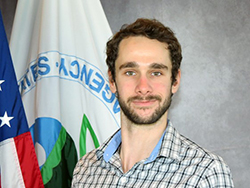 Renan Havill, U.S. EPA Technology Innovation and Field Services Division (havill.renan@epa.gov or 703-615-7735)
Renan Havill, U.S. EPA Technology Innovation and Field Services Division (havill.renan@epa.gov or 703-615-7735)
Renan works in the Technology Integration and Information Branch of the Technology Innovation and Field Services Division at EPA Headquarters. He supports the CERCLA Education Center and Clean Up Information Network webinars where institutional knowledge is preserved and new clean up technology is disseminated. He leads webinar series that inform regional Superfund staff of EPA Headquarters resources and manages collaborative tools developed. Renan holds a Bachelor's of Science in Environmental Science from Indiana University and a Master's of Science in Biomedical Engineering from George Washington University. He worked as a supervisory laboratory technician in a medical diagnostics lab prior to joining the EPA.
-
 Slide Presentation for Eddy-Dilek (12.8MB/PDF)
Slide Presentation for Eddy-Dilek (12.8MB/PDF)
-
 Slide Presentation for Lagos (3.49MB/PDF)
Slide Presentation for Lagos (3.49MB/PDF)
-
 Slide Presentation for Bonn and Ringley (10.5MB/PDF)
Slide Presentation for Bonn and Ringley (10.5MB/PDF)
-
 Slide Presentation for Klein and White (1.54MB/PDF)
Slide Presentation for Klein and White (1.54MB/PDF)
-
 Slide Presentation for Adamson and Newell (3.44MB/PDF)
Slide Presentation for Adamson and Newell (3.44MB/PDF)
-
 Slide Presentation for Demirkanli (11.4MB/PDF)
Slide Presentation for Demirkanli (11.4MB/PDF)
-
 Slide Presentation for TJohnson (37.4MB/PDF)
Slide Presentation for TJohnson (37.4MB/PDF)
-
 Slide Presentation for CJohnson 1 (4.80MB/PDF)
Slide Presentation for CJohnson 1 (4.80MB/PDF)
-
 Slide Presentation for CJohnson 2 (3.31MB/PDF)
Slide Presentation for CJohnson 2 (3.31MB/PDF)
-
 Slide Presentation for Combined Agency Announcements (1.28MB/PDF)
Slide Presentation for Combined Agency Announcements (1.28MB/PDF)
Webinar Slides and References:
-
 Slide Presentation for Eddy-Dilek (12.8MB/PDF)
Slide Presentation for Eddy-Dilek (12.8MB/PDF)
-
 Slide Presentation for Lagos (3.49MB/PDF)
Slide Presentation for Lagos (3.49MB/PDF)
-
 Slide Presentation for Bonn and Ringley (10.5MB/PDF)
Slide Presentation for Bonn and Ringley (10.5MB/PDF)
-
 Slide Presentation for Klein and White (1.54MB/PDF)
Slide Presentation for Klein and White (1.54MB/PDF)
-
 Slide Presentation for Adamson and Newell (3.44MB/PDF)
Slide Presentation for Adamson and Newell (3.44MB/PDF)
-
 Slide Presentation for Demirkanli (11.4MB/PDF)
Slide Presentation for Demirkanli (11.4MB/PDF)
-
 Slide Presentation for TJohnson (37.4MB/PDF)
Slide Presentation for TJohnson (37.4MB/PDF)
-
 Slide Presentation for CJohnson 1 (4.80MB/PDF)
Slide Presentation for CJohnson 1 (4.80MB/PDF)
-
 Slide Presentation for CJohnson 2 (3.31MB/PDF)
Slide Presentation for CJohnson 2 (3.31MB/PDF)
-
 Slide Presentation for Combined Agency Announcements (1.28MB/PDF)
Slide Presentation for Combined Agency Announcements (1.28MB/PDF)
Additional Resources:
Thank you for participating in our webinar. We would like to receive any feedback you might have that would make this service more valuable.
Help & FAQs
- Frequently Asked Questions
- Content Questions?
Call Cindy Frickle at 202-566-0927 or frickle.cindy@epa.gov - Technical Problems?
Leave us a comment - Cancel Your Registration
- My Participation Records
- CEU Credits and PDHs
Zoom Resources
Before Webinar Day
This seminar will be delivered through Zoom. Participants are encouraged to update to the latest version of the Zoom application for the best experience.
If you are unable to install the Zoom application, most functions will be available if you join just using a modern web browser such as Chrome, Edge or Firefox. We strongly encourage you to run the Zoom Meeting Test prior to attending this webinar. Technical support on the day of the webinar will be very limited and subject to significant delays.
Backup Conference Call
If you cannot participate using online audio, you may join the optional call in line. After checking in for the live event using the instructions listed below, you will see several options to participate. Please click the links in option 4 to follow along by phone and obtain the call in number. If you cannot access the phone number, you may request the call in line from the event moderator in the Q&A or send an email to Jean Balent at balent.jean@epa.gov
Click on "Join Webinar" at the top of this screen, enter your exact first and last name as you registered and enter the number of people attending at your location (including yourself). You should then be taken to the Zoom meeting room. Join with Zoom Application: For those joining with the Zoom application, you may be prompted to sign with a zoom account or join as a guest without signing in.
If joining as a guest, you will be prompted to enter your name and email address. Remember your name, image, video or voice may be visible to others in the live event. When done, click "Join" When it is time for the live event to start, the meeting host will admit you to the live Zoom meeting. Join via web browser (without the Zoom Application): For those joining with a web browser, you may close any pop ups prompting you to download the Zoom app. The next window will allow you to enter your name (first name and last name) and check the box that you are not a robot. Click the blue join button. You may also be asked to provide your email address before joining the room. Remember your name, image, video or voice may be visible to others in the live event. When done, click "Join" When it is time for the live event to start, the meeting host will admit you to the live Zoom meeting. You may need to periodically refresh the browser window to confirm if the host has admitted you. The presenters will control what slide you are viewing. You may submit questions online for the instructors to answer during the webinar by typing in the "Q&A" area. It is not necessary to wait until the question and answer periods to submit questions. At the end of the webinar you will be guided to our feedback form and links to additional resources, including the complete presentation. These links will remain active after the webinar. Provided for your convenience. Importing or accepting the invitation within this iCalendar file is not required, and declining the invitation does not cancel your registration. For additional information on iCalendar, please see our
iCalendar Help It is EPA's policy to make reasonable accommodation to persons with disabilities wishing to participate in the agency's programs and activities, pursuant to the Rehabilitation Act of 1973, 29 U.S.C. 791. Any request for accommodation should be made to at or , preferably one week or more in advance of the webinar, so that EPA will have sufficient time to process the request. EPA would welcome specific recommendations from requestors specifying the nature or type of accommodation needed. EPA welcomes specific recommendations from requestors specifying the nature or type of accommodation needed. Please note that CLU-IN provides both alternate phone call-in options and closed captioning for all webinars, and requests for these specific accommodations are not necessary.
Webinar Day, Checking In
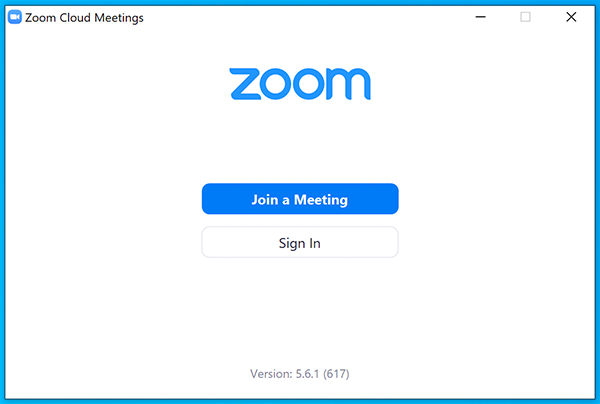
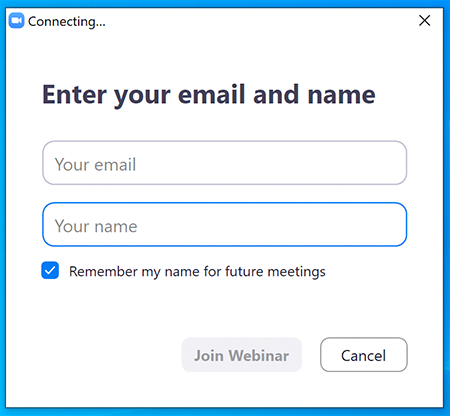
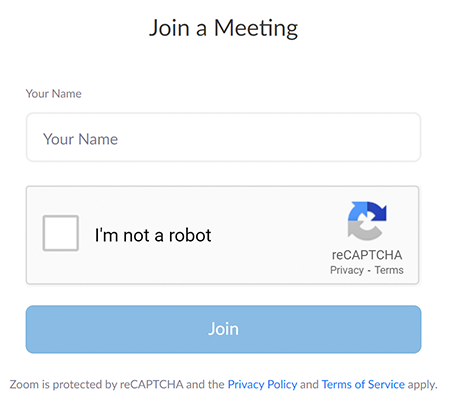
Moving Through Slides
Feedback & Links to Additional Resources
iCalendar File
Rehabilitation Act Notice for Reasonable Accommodation
Rehabilitation Act Notice for Reasonable Accommodation
It is EPA's policy to make reasonable accommodation to persons with disabilities wishing to participate in the agency's programs and activities, pursuant to the Rehabilitation Act of 1973, 29 U.S.C. 791. Any request for accommodation should be made to at or , preferably one week or more in advance of the webinar, so that EPA will have sufficient time to process the request. EPA would welcome specific recommendations from requestors specifying the nature or type of accommodation needed. EPA welcomes specific recommendations from requestors specifying the nature or type of accommodation needed. Please note that CLU-IN provides both alternate phone call-in options and closed captioning for all webinars, and requests for these specific accommodations are not necessary.
Webinar Recording
By participating in this CLU-IN webinar, you automatically agree to authorize recording of audio and visual content presented during this live event and consent to subsequent use of this recording in the public domain by the U.S. Environmental Protection Agency. This recording may include questions, comments and poll responses provided by you during the live event in addition to your name, voice, image or likeness. This recording will be made available after the conclusion of the live event as part of the CLU-IN webinar archives, and will remain available indefinitely. If you do not wish to consent to the recording, please do not join the live event, and contact Jean Balent at 202-566-0832 or balent.jean@epa.gov to discuss your concerns.
Content Disclaimer
This webinar is intended solely to provide information to the public. The views and opinions expressed as part of this webinar do not necessarily state or reflect those of the U.S. Environmental Protection Agency. It is not intended, nor can it be relied upon, to create any rights enforceable by any party in litigation with the United States, or to endorse the use of products or services provided by specific vendors. With respect to this webinar, neither the United States Government nor any of their employees, makes any warranty, express or implied, including the warranties of merchantability and fitness for a particular purpose, or assumes any legal liability or responsibility for the accuracy, completeness, or usefulness of any information, apparatus, product, or process disclosed, or represents that its use would not infringe privately owned rights.

